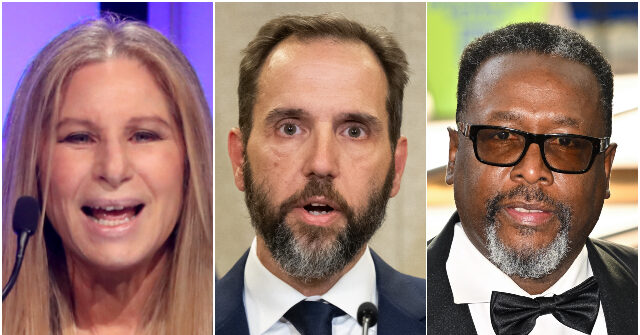The recent decision by special counsel Jack Smith to dismiss the federal government’s remaining charges against President-elect Donald Trump has prompted a wave of backlash from Hollywood celebrities. Figures such as Mark Hamill, Jon Cryer, and George Takei took to social media to express their dismay, proclaiming that this development signifies a grievous erosion of the rule of law in America. Despite their vocal reactions, many failed to acknowledge the potential political motivations behind the Biden-Harris administration’s legal actions against Trump. With accusations of election interference and other allegations swirling around Trump, the dismissals are seen by these celebrities as a direct threat to justice and accountability.
Among the prominent voices reacting was Mark Hamill, known for his role in Disney’s Star Wars franchise, who lamented that “justice in America, in fact, does NOT matter.” This sentiment echoed the distress expressed by actor Wendell Pierce, known for his work on HBO’s The Wire, who warned that this event marked the decline of rule of law. Jon Cryer, a star of CBS’ Two and a Half Men, intensified the alarm by asserting that the evidence against Trump is “overwhelming and unrefuted.” Their statements reflect a growing sense of urgency among some in Hollywood regarding perceived injustices connected to Trump’s legal battles.
Smith’s actions in court included filing a motion to dismiss two significant cases that had once threatened Trump, consolidating his standing as he embarks on his new presidential term. With the dismissals of federal prosecutions, only state-level cases remain against Trump, further escalating concerns among those who have long championed the pursuit of legal accountability for the former president. The reaction from Hollywood figures is rooted in a belief that bypassing these federal charges signals a dangerous precedent, which they argue will undermine the integrity of American justice.
Barbra Streisand also joined the chorus of criticism, asserting that Trump escaping accountability for events surrounding January 6th and the handling of classified documents reflects poorly on the country’s legal system. Her perspectives are indicative of the sentiment in Hollywood, where many had hoped for substantial ramifications for Trump’s actions. This shared disappointment in Trump’s perceived evasion of legal consequences has fostered a narrative among these celebrities that the political landscape has become far too permissive for individuals in power.
Further illustrating this outcry, George Takei’s remarks took a more humorous yet biting approach, intertwining political commentary with a critique of Trump’s character. As many of these celebrities tweeted their disapproval, others, like actress Mia Farrow, expressed a profound sense of despair about the unfolding situation. Farrow’s assertion that the principle of “no one is above the law” is now shattered reflects a bleak outlook from a sector of society that has consistently levied serious charges against Trump.
This situation encapsulates not only the tumultuous relationship between Hollywood figures and the political arena but also highlights the broader implications of legal proceedings when intertwined with political sentiments. As the nation watches the aftermath of these dismissals, the polarized views within celebrity culture showcase the enduring impact of Trump’s presence in American politics. With an uncertain future remaining for Trump’s legal battles, the reactions from Hollywood often serve as a barometer for how certain segments of the public perceive justice and accountability in modern governance.

